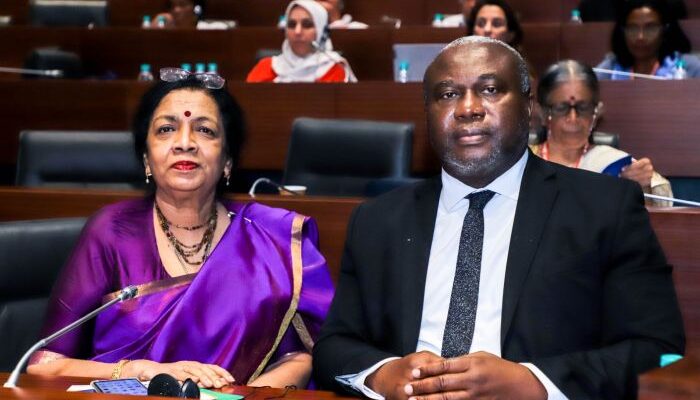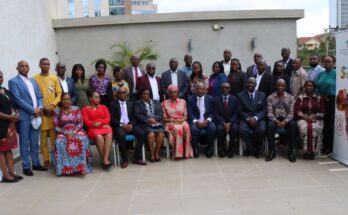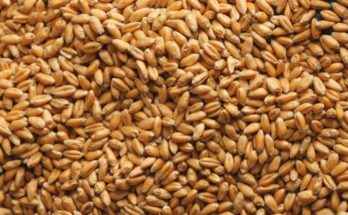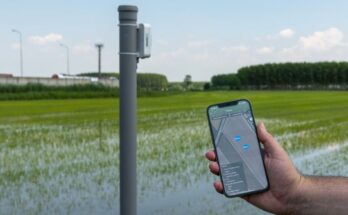Dr. Nandini Azad, a renowned figure on the global agriculture and cooperative stage, currently serving as the President of the Indian Cooperative Network for Women (ICNW) and is also a global facilitator of the cooperative working group at the World Farmers Organization (WFO) in Rome, made several suggestions at the Global Symposium on Farmers’ Rights (GSFR). This international symposium, jointly organised by the Government of India, the Indian Council of Agricultural Research (ICAR), the Protection of Plant Varieties and Farmers’ Rights (PPVFR) Authority, the UN-FAO, and the International Treaty on Plant Genetic Resources for Food and Agriculture, convened in New Delhi from September 12-15, 2023. President Draupadi Murmu inaugurated the GSFR.
Dr. Azad made insightful remarks during a pivotal session themed “Legal and other measures supporting the realisation of Farmers’ Rights.” She pointed out a crucial aspect that had been missing throughout the conference – the need for stronger connections between cooperatives and farmers. Nandini Azad emphasised that fostering these connections is paramount for revitalising and regulating the seed industry through comprehensive legal measures, with a primary focus on integrating cooperatives into the process. Such a collaborative approach, she argued, would undoubtedly lead to more effective legal enforcement.
You may also like to read: Emerging technologies and precision farming SaaS to design future landscape for agriculture
Nandini Azad called for the active involvement of science in empowering marginalised women. She stressed the importance of engaging with underprivileged women, underscoring the exemplary role of mass women’s cooperatives like ICNW.
She said, “Our Prime Minister calls for women-led development and we need to fulfil that dream. Our germination and fertility cult gives a special place to women. For women-led development to become a reality, we must support our women’s cooperative groups through strong scientific capacity-building measures.”
Dr. Azad’s visionary perspective was underscored by concrete examples where the convergence of genetics and organisational prowess within women’s cooperatives had led to remarkable innovations. Her words served as a poignant reminder of the immense potential that can be unlocked when science, women, and cooperative efforts synergise to bring about positive change in agriculture and society at large. Her remarks left an indelible mark, inspiring all participants to take collective action toward a more inclusive and empowered future.
Dr. Nandini Azad also met Dr. Kent Nnadozi, Secretary of the FAO International Treaty on Plant Genetic Resources for Food and Agriculture who appreciated her efforts and contributions.
You may also like to read: Technology adoption is key to sustainable regenerative farming
ICNW’s President informed delegates from 59 countries that in the heart of rural India, where agricultural livelihoods dominate the landscape, her organisation has emerged as a beacon of hope and empowerment for poor women. ICNW and Working Women’s Forum (WWF) have 14 branches in the four southern states of India – namely Tamil Nadu, Karnataka, Andhra Pradesh; and Telangana. The organisation empowered over 600,000 women farmer micro-entrepreneurs. Driven by her dedication to empowering marginalised women, ICNW has left an indelible mark on cooperatives and gender equity.
ICNW is on a mission with a dual focus: to provide marginalised women with financial inclusion and empowerment training while championing agricultural sustainability and food security. The organisation’s impact shines brilliantly through the stories of two exceptional women, Kaliammal Kumar and Pushpavalli, who have transformed not only their own lives but also their communities through innovative agricultural practices. Dr. Nandini Azad narrates the tale of Kaliammal Kumar and others
Kaliammal Kumar: A Testament to Tradition and Innovation
Kaliammal Kumar, hailing from a long line of marginalised landholders, emerged as a beacon of change through her journey with ICNW. She embarked on this transformative path by acquiring continuous loans, totalling around 20 cycles, which she astutely invested in rejuvenating her family’s agricultural endeavours. Drawing upon her rich agricultural heritage, Kaliammal’s initial investment was in two cows, whose milk she sold in local tea shops, tapping into the local market. Within a year, she had planted paddy twice and used cow manure as a natural fertiliser. After the paddy harvest, she ventured into seed provenance, a technique passed down through generations. Kaliammal meticulously saved and preserved mature seeds using traditional methods such as cleaning, drying, and storing them in airtight containers. Her entrepreneurial spirit shone as she sold these seeds to her neighbours, supplementing her income. Moreover, she generously shared this scientific seeding wisdom with her friends and fellow ICNW credit group members.
You may also like to read: How carbon credit programmes can benefit farmers while combating climate change?
Kaliammal’s agricultural prowess extended beyond paddy, encompassing a diverse range of crops, including samba, ponni, vegetables, groundnut, and ragi. She adeptly adapted her practices to the ever-fluctuating climate. Over time, her efforts bore fruit, allowing her to expand her landholding to an impressive two acres.
Pushpavalli: A Journey from Aspiration to Agricultural Success
Pushpavalli, another ICNW beneficiary, aspired to be a successful farmer despite financial challenges. She secured loans from ICNW, enabling her to invest in two cows and purchase two acres of land. Pushpavalli initiated paddy cultivation, recognising the value of cow dung as a potent fertiliser. Like Kaliammal, she embraced the traditional practice of saving and storing paddy seeds enriched with organic manure. Pushpavalli’s innovative spirit led her to cultivate high-value crops like seeraga samba rice, attracting local interest and even garnering attention from the Coimbatore Agriculture Research Center. She expanded her crop portfolio to include IR-50 paddy and played a pivotal role in distributing seeds to fellow group members, enhancing food security in the community. The stories of Kaliammal Kumar and Pushpavalli illuminate the transformative impact of ICNW/WWF in empowering women and fostering sustainable agriculture.
You may also like to read: Agri NBFCs and Fintech play critical role to augment credit requirements for agri innovation
Through financial support, including loans and mentoring, empowerment training, and the promotion of sustainable farming practices, these women have not only improved their own lives but have also made substantial contributions to their communities. Their journeys stand as powerful examples of how women farmers can play a pivotal role in enhancing food security, conserving traditional farming knowledge, and driving positive change in rural India.
The GFSR was attended by more than 700 delegates from 59 countries including the National Focal Points of the International Treaty, farmer bodies from around the world, policymakers, scientists, research scholars, industry representatives, government officers, intergovernmental and non-governmental organisations, legal experts, and civil society. This first-of-its-kind symposium aims to facilitate the implementation of Farmers’ Rights by Contracting Parties of the Treaty through discussions on innovative approaches, effective policies, best practices, plans of action, knowledge, and experience sharing in implementing farmers’ rights including especially women farmers’ rights.





